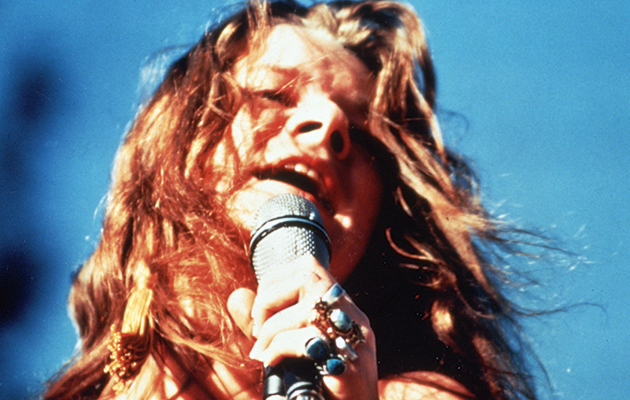Big Brother quickly landed a residency at The Avalon, becoming the stars of a tight-knit local scene that also included the Grateful Dead and Jefferson Airplane.
“The use of psychedelics led to a sense of deep exploration with all those San Francisco bands,” says Kaye. “Their performances weren’t rock concerts as such, they were environments where the musicians and the audiences could have space to explore themselves. Big Brother were taking jazz and blues into some abstract future.”
Janis fitted uneasily into this burgeoning acid culture. “She never did psychedelic drugs,” says Joe McDonald, lead singer of Country Joe And The Fish. “She didn’t like to lose control. With her it was always the booze, and later heroin.” But she was keen to escape her conservative upbringing in Texas, and Haight-Ashbury was the perfect place to embrace the ethos of creativity, self-exploration, racial integration and free sex.
It was the sex that particularly appealed. Within weeks of her joining Big Brother, the band were scandalised when she started an affair with James Gurley – despite her being close friends with Gurley’s wife, Nancy. Janis’ sexual conquests later included Sam Andrew, Joe McDonald, Kris Kristofferson, Hendrix and Jim Morrison. There are also rumours linking her to Eric Clapton, Leonard Cohen, talk-show host Dick Cavett, comic actor Howard Hesseman, New York Jets quarterback Joe Namath and musician Janis Ian.
“Being voted ‘the ugliest man on campus’ must have hurt her bad,” says Gurley. “She was unconfident about her appearance, so she jumped at any chance she got to self-validation. I guess you could call it over-compensation.”
For some, like her first biographer Myra Friedman, Joplin’s sexual promiscuity went hand-in-hand with her live performances – both were “screams of liberation of the female spirit that roared right up to the stars”. But that lusty hedonism was trammelled by a masochistic edge. For Julie Burchill, she represented “the rock-chick as victim… filled with treat-me-like-a-doormat whimpering”.
“I think some of those criticisms are unfair,” says Patti Smith, a long-term fan of Janis Joplin. “Take her version of Irma Franklin’s ‘Piece Of My Heart’. Irma’s version is saying you can’t defeat me, no matter how much of my heart you take, there is still something left. Janis’s version puts a slightly different spin on the lyric. In her version, she’s going through every possible form of humiliation and pain in order to come out the other side, changing him and herself in the process. It’s more about transcendence than victimhood…”
Janis herself was certainly not enamoured with the first-wave of ’60 feminism (“Geez, it looks like these radical feminists hadn’t a good time in months!” she said to one reporter when shown a feminist newspaper). But she certainly called into question the traditional gender roles in rock’n’roll.
“Haight-Ashbury was a pretty sexist environment by today’s enlightened standards,” says Sam Andrew. “Men were creative and adventurous. Women were expected to hold the fort. They’d make the food, they’d do the cleaning, they’d babysit for us while we’d drop acid.”
Janis was too tomboy-ish to acquiesce to the house-mother role (“she liked being one of the guys,” says Gurley), but she still had to live up to the certain expectations of feminine conduct.
She was certainly keen to placate the worries of her parents. Her sister Laura Joplin’s biography Love, Janis features dozens of letters that Janis wrote to her family, which constantly reassure her parents that she is doing well and earning enough money to get by. “She knew how upset her parents were about her quitting college,” says Laura, “and was eager to placate their worries.”
Those worries receded after Monterey. Janis and Big Brother ditched their manager, a slightly paranoid local stoner called Julius Karpen (who didn’t even want them to be filmed at the festival) and signed with heavyweight Albert Grossman, who also repped Bob Dylan. After a year of wrangling with their old label, Mainstream, Grossman got them signed to Columbia and eventually released Big Brother’s finest album, Cheap Thrills. An approximation of their blistering gigs, it spent eight weeks on top of the US chart.
Monterey also represented a key power shift within the group. Janis became the undisputed star, Big Brother merely her backing group. “Where she was once the icing on the cake, she became the cake,” says Dave Getz. “When we watched the Monterey Pop film, the first thing we noticed was that it was just Janis. The rest of the band were barely in the movie!”



